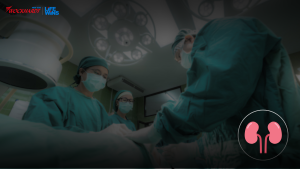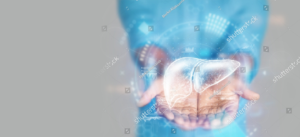
Kidney Transplant in Mumbai: A Step-by-Step Journey from Surgery to Recovery
A Kidney Transplant is a life-saving option for those who are at the end stage of a Kidney-related issue. Although it offers a new lease on life, the process of Kidney Transplant is quite intimidating, with too many questions popping up in the head, like what will be the procedure, the recovery time, etc. Getting the picture of the entire process can immensely help a patient manage their expectations and initiate a smooth transition to health. If you are thinking of getting treatment in Mumbai, then you are on the right page to start with. Mumbai is India’s one of the best medical hubs, equipped with highly advanced medical technology, skilled medical experts, and experience. This blog will take you through the lore of Kidney Transplants in Mumbai—providing a comprehensive, step-by-step guide: from initial consultation, post-surgery recovery, and everything in between. What is Kidney Transplant? A Kidney Transplant is basically the replacement of a damaged or deceased Kidney with a healthy one. This can be from a living person (mostly family) or a deceased individual. A Kidney Transplant is recommended to patients with Kidney failure due to some chronic disease or to people who are not anymore responding to dialysis. The key aim of Kidney Transplants is to banish the need for Kidney dialysis and, hence, enhance the quality of life. The Lore of Kidney Transplant Here is the step-by-step process of a Kidney Transplant from surgery to recovery: 1. The Consultation & Evaluation Before performing surgery like a Kidney Transplant, your doctor will go through your previous medical records. This will help the doctor evaluate whether you are ready for the surgery or not. You can expect these for evaluation: A Detailed Talk on Your Medical History A doctor will review your medical history, concentrating on your previous health issues that may or may not be related to Kidney issues. Expect a thorough discussion on dialysis if you are already receiving one. Physical Exams & Diagnostic Tests: You will undergo a series of physical tests, blood tests, and imaging scans to ensure your overall health and surrounding organs. Psychological Exams: As mentioned earlier, a Kidney Transplant is a daunting process that requires a lot of emotional and mental courage. A psychological exam will help you get ready mentally and emotionally for the surgery. 2. Finding a Kidney Donor: Two main types of Kidney donors are living donors or deceased donors. Let’s take a closer look at both: Living donor Kidney Transplant: The ideal scenario for you is to get yourself a living donor, they can be a family or close relative. The living donor goes through a series of tests to ensure that s/he is fit to donate. Kidney matching is done by blood type testing and tissue matching. Deceased donor Kidney Transplant: When a living donor is not available for any reason, the patient may need to wait for a deceased donor. In India, deceased organ donation is managed by a national and state registry. But, here the availability depends on factors like blood type, and tissue matching. The patient will be put on dialysis until doctors find the right donor. 3. Pre-surgery Preparation: Once the donor is found, the date of the surgery is scheduled. Here are some steps of pre-surgery you need to take: Hospital admission and Medication adjustment: You need to get admitted at least a day before surgery for some final tests, and your doctor will answer some last-minute questions if you have any. For any existing medical condition that you may have, your doctor will adjust some medications to tackle any potential infection. Anesthesia consultation: The anesthesia team will contact you to provide information about the type of anesthesia used during the transplant. 4. The Kidney Transplant: The overall time to commence a Kidney Transplant is 3 to 4 hours under general anesthesia. Here is what happens during the surgery: Incision:The surgery starts with making a small cut on the lower abdomen, to place the donor Kidney. The damaged Kidney is usually not removed until it is required meaning the Kidney is placed over the deceased one. The Transplantation:The surgeon carefully places the new kidney on the previous one and connects it to the blood vessels (renal arteries and veins) and ureters (tubes that join the kidneys and urinary bladder). Monitoring (during and after the surgery):We closely monitor your vital signs, including heart rate and blood pressure, throughout the transplantation to ensure everything proceeds smoothly.After the surgery, we transfer you to the intensive care unit for continuous observation. This ensures your body responds well, with no bleeding or rejection of the new kidney. 5. Post-operative Care: The ICU team will monitor you for a few hours before shifting you back to your ward. You will then begin the recovery process, which typically lasts 7 to 10 days in any hospital in Mumbai. Antibiotics and immunosuppressants:During Post-operative care, the patients are provided with antibiotics, pain management medications, and immunosuppressants(Medicines that suppress immune response from attacking the new Kidney) to get relief from pain and to prevent any infection. Urine monitoring:In most cases, the new Kidney has started working by now, if it has not then the patient will be put on dialysis. Doctors will regularly monitor the new Kidney to ensure proper functioning. 6. Discharge, Home Recovery, & Long-Term Care: You will go home to continue your recovery once you stabilize after surgery. You’ll take lifelong medication to prevent your body from rejecting the new kidney. You can attend regular follow-up check-ups, starting more frequently, to ensure your new kidney functions properly. Maintaining a good diet, gentle exercises, and avoiding heavy exertion is healing. Emotional support can be valuable. Recovery can be tough mentally. You’ll continue with your medication, regular check-ups, and healthy habits like exercising and a balanced diet to keep your Kidney healthy in the long run. Conclusion With Kidney Transplant Surgery in Mumbai, there is the possibility of a new life for patients experiencing failure in their Kidneys. The best



































